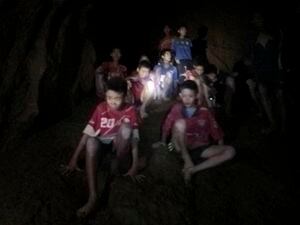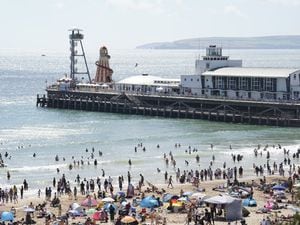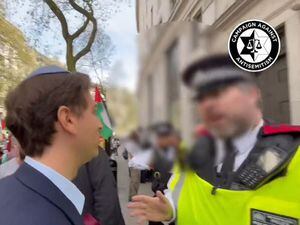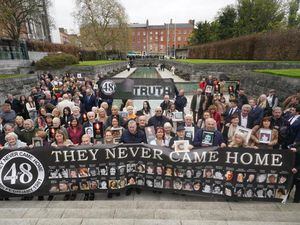Euphoria as UK divers lead discovery of Thai cave group – but rescue not over
Nearly a mile of partially flooded tunnels lies between the 12 boys, their football coach and safety.

British divers have “spearheaded” the discovery of 12 boys and their football coach missing for nine days in flooded caves in Thailand, however rescuers now face the daunting task of bringing them to safety.
Rick Stanton and John Volanthen are believed to have been the first rescuers to reach the group who disappeared in the Luang Nang Non Cave, Chiang Rai province, on June 23.
There were scenes of elation on Monday as parents and relatives who had gathered at the cave site learned the group had been found in a stable medical condition.
However rescuers still face the challenge of safely helping the boys and their coach to safety through nearly a mile of tunnels, large portions of which are underwater.
Another would be waiting for the water level to drop, which some officials are reported to fear could take months.
Mr Stanton and Mr Volanthen, along with a third Briton, Robert Harper, joined the “huge” search operation after the British Cave Rescue Council (BCRC) was contacted by Thai authorities seeking expert help.

“It was euphoria for a moment and then you draw back and think ‘what do we do’ – it’s not going to be easy to get 13 people out of a flooded cave,” he told the Press Association.
“There’s space to make your way through, but it is 50/50 underwater over 1.5km (0.9mi). That’s still a lot of diving and it’s possible it will need a lot of equipment. The questions is how much time until the water goes up again.”
In footage of the moment the divers arrived in the chamber, a rescuer with an English accent is heard trying to reassure the group that help is coming.
However they warn that they are not going to be retrieved immediately, the voice saying: “Not today. There’s two of us, you have to dive.”

Since their discovery they have been given a brief medical assessment and supplied with high-protein liquid food, painkillers and antibiotics as a precaution.
“They clearly want to get them out as quick as they can, they will be making plans to get them out as quickly as possible,” he said.
Search efforts were hampered last week after heavy rain rushed into the cave network, raising water levels and creating strong currents that made diving “more or less impossible”.
Underwater operations resumed after the treacherous conditions began to improve on Sunday, with the forward search party setting off at 6am BST on Monday (1200 local time).
“The British divers Rick and John were at the spearhead of that,” Mr Whitehouse said.

“We were hoping that today we would know one way or the other (if the group would be found).
“They managed to dive the last section and get through into the chamber where the missing party were on a ledge above the water.”
Despite the key role played by the British team in Monday’s remarkable events, Mr Whitehouse highlighted that they were part of a major effort overall.
“It was a huge operation of which our divers were only a relatively small part, but it happened to be a breakthrough,” he said.

Mr Stanton, in his 50s, is a fireman from Coventry who helped to rescue Britons trapped in a cave in Mexico in 2004, according to reports.
He is regarded as one of the world’s leading cave rescue experts, and was made an MBE at the end of 2012.
Divernet described him as “arguably the main face of British cave diving” and he has told the publication he regards diving as “my hobby” and undertakes it completely voluntarily.
Mr Volanthen, an IT consultant in his 40s, who is based in Bristol, reportedly set a world record for the longest dive from the surface of water in a team with Mr Stanton in 2011.
He said in an interview with the Sunday Times magazine in 2013 that caving requires a cool head and that “panic and adrenaline are great in certain situations but not in cave-diving”.





